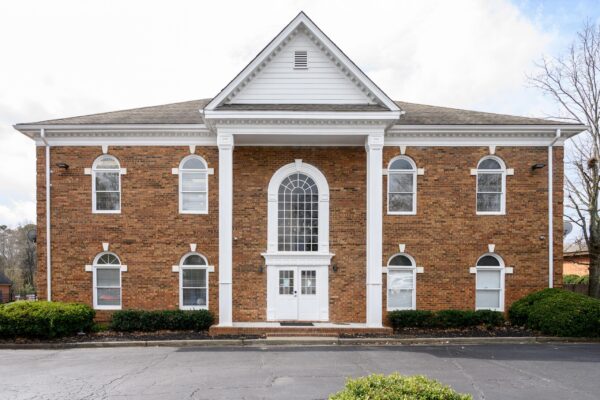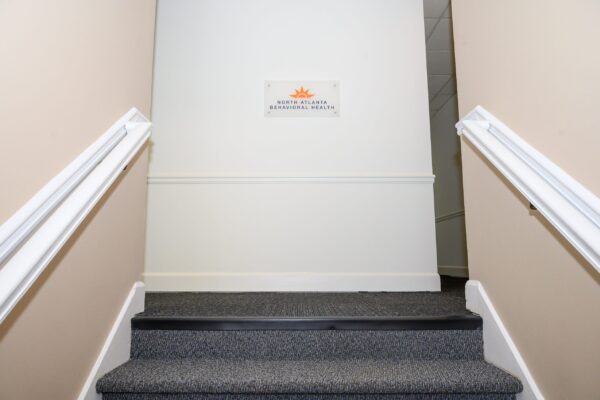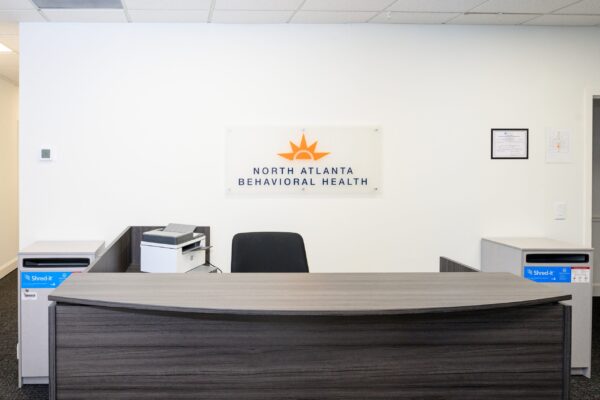According to the National Center for PTSD, post-traumatic stress disorder, or PTSD, affects 5 out of every 100 American adults annually, or roughly 5% of the total population. At North Atlanta Behavioral Health, we specialize in providing comprehensive and compassionate PTSD treatment in Atlanta. Our dedicated team of professionals is here to support you or your loved one every step of the way, offering highly personalized and effective mental health treatment options.
To learn more about PTSD treatment in Atlanta or to begin your journey of mental health recovery, call us now at 770-230-5699 or verify your insurance.
What is Trauma and How Does It Lead to PTSD?
Trauma is an emotional response to a deeply distressing or disturbing event. It can shatter your sense of security, leaving you feeling helpless and vulnerable. In some cases, trauma can lead to the development of PTSD. Understanding the link between trauma and PTSD is crucial to the healing process.
Post-traumatic stress disorder is a mental health condition that can develop following exposure to a traumatic event. It is characterized by symptoms such as flashbacks, severe anxiety, and uncontrollable thoughts about the event.
The National Center for PTSD states that approximately 7-8% of the population will experience PTSD at some point in their lives. This condition affects about 8 million American adults in a given year, demonstrating its widespread impact.
Signs and Symptoms of PTSD
Recognizing the signs and symptoms of PTSD is the first step toward recovery.
Symptoms associated with post-traumatic stress disorder include:
- Re-experiencing the traumatic event through flashbacks or nightmares.
- Avoidance of people, places, or activities that remind one of the trauma.
- Negative changes in thoughts and feelings, such as persistent fear or guilt.
- Feeling constantly on edge, leading to irritability or angry outbursts.
- Difficulty concentrating and remembering details.
- Disturbances in sleep patterns, like insomnia.
- Emotional numbness or detachment from others.
- Heightened startle response.
Each individual may experience these symptoms differently, and their severity can vary.

Is Trauma the Same as PTSD?
While trauma is a response to a distressing event, not everyone who experiences trauma will develop PTSD. PTSD is a psychiatric disorder that can occur in people who have experienced or witnessed a traumatic event. This distinction is vital in understanding the complexities of PTSD and its treatment.
Potential causes of PTSD include:
- Experiencing or witnessing life-threatening events, such as natural disasters, serious accidents, or violent personal assaults.
- Military combat and exposure to warzone stressors.
- Sexual assault and other forms of violence or abuse.
- Severe injury or traumatic health issues, like being in intensive care.
- Long-term exposure to traumatic situations, such as first responders to emergencies.
- Traumatic losses, like the sudden death of a loved one.
These events can trigger PTSD by overwhelming an individual’s ability to cope with the intense fear and stress they provoke. Fortunately, PTSD treatment in Atlanta offers those who have been struggling with trauma-related mental health issues the opportunity to make a full recovery.
How Does PTSD Treatment in Atlanta Work?
At North Atlanta Behavioral Health, the process of treating PTSD is thorough and individualized. It starts with a comprehensive evaluation conducted by a team of experts, who then develop a tailored treatment plan. This plan may combine therapy and medication, based on the individual’s specific needs.
The integrative approach taken at North Atlanta Behavioral Health encompasses all aspects of a person’s life, ensuring a holistic path to recovery. This method recognizes that effective PTSD treatment must consider the physical, emotional, and social factors impacting the individual. We offer three different levels of care so individuals can find the best path of recovery that fits their needs:
- Partial Hospitalization Program (PHP): Our Partial Hospitalization Program for PTSD is a structured form of treatment that offers comprehensive psychiatric care without a full inpatient stay. Clients typically spend several hours a day, multiple days a week, at a our facility engaging in therapy, counseling, and group sessions. This program is designed for individuals who need more support than traditional outpatient care but less than inpatient or residential programming, allowing them to maintain some daily activities.
- Intensive Outpatient Program (IOP): IOP provides a high level of care while allowing clients to live at home or a structured supportive housing environment. It involves attending therapy sessions several times a week, focusing on individual and group counseling, coping strategies, and skills training. IOP is suitable for those who require more structure than regular outpatient programs but can manage their symptoms without round-the-clock supervision.
- Outpatient Treatment (OP): Outpatient rehab for PTSD offers flexibility and independence, with clients attending scheduled therapy sessions while continuing their daily obligations. It typically includes individual therapy, group counseling, and various therapeutic approaches tailored to individual needs. At North Atlanta Behavioral Health, we do not admit clients directly into this level of care, but use it as a step-down from Intensive Outpatient Programming.

Our Approach to PTSD Treatment
Our approach to PTSD treatment is multifaceted and personalized. We utilize evidence-based therapies alongside holistic methods, taking a whole-person approach to mental health recovery. We also provide support in building coping skills and resilience.
North Atlanta Behavioral Health offers a range of services tailored for PTSD treatment:
- Psychiatry Services: Focuses on diagnosing and treating PTSD through various psychiatric methods, including medication management.
- Family Therapy: Addresses family dynamics and support, which are crucial in the healing process of PTSD.
- Brainspotting: A therapy that identifies and processes trauma-related issues stored in the brain, aiding in PTSD recovery.
- Red Light Therapy: A non-invasive treatment that helps in reducing symptoms of PTSD by promoting healing and relaxation.
- Holistic Therapy: Integrates various non-medical therapies, such as yoga or meditation, to support overall well-being and manage PTSD symptoms.
How is PTSD Treated?
PTSD is treated through a combination of psychotherapy and, in some cases, medication. Psychotherapy, also known as talk therapy, involves working with a therapist to process the trauma and learn coping strategies. Medications can help manage symptoms such as anxiety and depression.
What to Look for in A PTSD Treatment Program
When selecting a PTSD treatment center, consider the following factors:
- Accreditation and qualifications of the center and its treatment team.
- Availability of evidence-based treatments such as CBT and EMDR.
- Personalized care plans that address individual needs.
- A supportive and nurturing treatment environment.
- Aftercare support for ongoing recovery.
- A proven track record of success and positive client feedback.

By NABH Staff
Medically Reviewed by
Erika Dalton, LMSW.
Last Updated on August 21, 2025
Get Help Now
Begin Depression Treatment in Atlanta Today
Mental health disorders cannot be treated by treating the symptoms alone. We use holistic and evidence-based methods to treat the entire individual.
Facility Image Gallery
Find PTSD Treatment in Atlanta Today
If you or a loved one is struggling with PTSD, North Atlanta Behavioral Health is here to help. Our compassionate and experienced team is dedicated to providing the highest quality of care. Contact us today to start your journey to recovery. We are here to support you every step of the way and provide answers to any additional questions you may have.

Treatment Philosophy
North Atlanta Behavioral Health is dedicated to the health and happiness of our clients. We offer personalized treatment plans that put each individual’s needs first.

Meet Our Team
Our multidisciplinary team wants nothing more than for our clients to achieve a lifetime of recovery and sobriety. Let us help you get the most out of treatment.













 I have been to my fair share of mental health programs and this one was extremely small, intimate and every staff member I have ever had contact with has been completely professional, compassionate, and caring.
I have been to my fair share of mental health programs and this one was extremely small, intimate and every staff member I have ever had contact with has been completely professional, compassionate, and caring.










